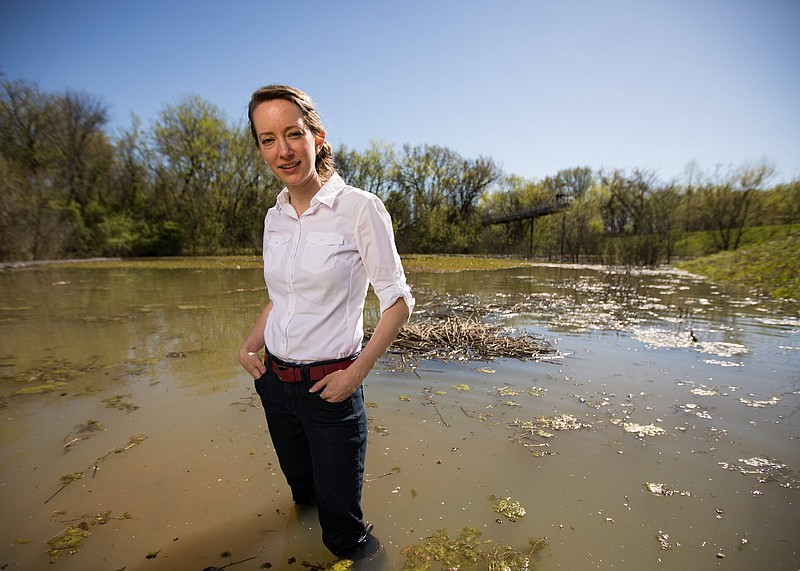It was truly the best and worst of times for Clea Klagstad in 2019 – she was expecting her first baby, but her two-year-old environmental consulting firm was struggling.
"I had enough projects to stay afloat," she says, "but I was working 40 to 50 hours a week at a job I wasn't really getting paid for."
Klagstad says she had bid on a large federal contract just before she learned she was pregnant, but wasn't optimistic.
"If that contract doesn't come in," Klagstad recalls, "I'm thinking maybe I shut it down."
But then her firm, Circadian Consulting, won that contract, and everything changed. More contracts followed, including one with the City of Chattanooga.
"And I had a lot of private contracts," she says. "Developers who called because they had wetlands they didn't know what to do with."
Developers call Klagstad because she holds a master's degree from Austin Peay State University's Center of Excellence for Field Biology. She's also earned two professional designations and has 10 years of experience in her field.
So it might be surprising to know that she considered her Notre Dame High School science courses "tough" – until she came under the tutelage of Matt Irvin.
"He was good at making biology and chemistry accessible," she says. "He took some of the mystery out and made it easier to hear."
Irvin praises his former pupil, and not just for what he calls her "sharp mind, quick wit" and "keen interest."
"One year, I asked her back as a guest speaker in my AP [Advanced Placement] Environmental Science class," he recalls. "She shared her expertise on how environmental science can be applied in the real world and I even learned a few things.
"I love when I learn from my former students and when they give back," Irvin says.
Klagstad says she had a similar experience at Middle Tennessee State University, where she enrolled in 2006 as a communications major but changed course in the classroom of Michael Rutledge.
"I was just filling a biology requirement," she recalls, "but he made me think about the impacts of development, like wetland destruction and habitat loss.
"He was so passionate; he made it seem it was possible to work in the field and actually affect something," she says.
Klagstad changed her major to biology, then came home and finished her undergrad degree at the University of Tennessee at Chattanooga in 2010. Then came her two years at Austin Peay in Clarksville, Tennessee.
She credits Joey Shaw, one of the curators of UTC's Herbarium, and Dwayne Estes, Shaw's counterpart at APSU, with mentoring her as she completed her academic training.
"What a lot of people don't know is that Tennessee has great botanists all over the state, really good at what they do," she says.
Klagstad says she left APSU "with a head full of plant names" and got her first post-graduate job with the Montana Natural Heritage Program.
"Lots of field work," she says. "Beautiful country and physically demanding. We did a lot of wetland delineation and stream surveys, looking for rare plants and trying to better understand how groundwater-dependent ecosystems work."
Klagstad says she went on to work at a pair of Ohio-based environmental consulting firms. She says she returned to Chattanooga to launch her own firm because the city "had a lot of startups going."
"And I wanted to have more say in what got back to the clients," she says.
Klagstad credits developers for "thinking outside the box more" these days, adding that most try to avoid wetlands and disturb as little as possible.
"One developer asked me to do a tree survey, so that he can understand which are native," she says. "He wants to save as much as he can and help make the neighborhood greener. It's a really cool project."
Klagstad notes that while she's seeing "more thoughtful development strategies coming in Chattanooga," there remains room for improvement.
"I definitely think we're headed in the right direction, but it depends on what Chattanooga wants to be," she says.
"Chattanooga is known for recreation and tourism. If we want to preserve what we can, and incorporate that into our identity, we have to start thinking differently, more like a Northwestern state," she says.
